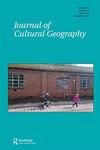Migration, ethnicism, and transnationalism versus the right to assume citizenship by one’s (multi-) presence in the world
IF 0.9
Q3 GEOGRAPHY
引用次数: 0
Abstract
ABSTRACT Reflecting on my experience, I present an example of a collision between theory and reality, within the context of my study of Cadaqués, a coastal village in Spain with a history of proteiform mobilities and currently home to a diverse immigrant population working in the tourism industry. This analysis is based ethnographic work in the village, including qualitative interviews with fifty residents, statistical data, press articles, and mapping. The results of my field study appeared to be out of kilter with the abundant literature on the themes I had selected and I was forced to re-center my study by establishing new models: instead of taking a migratory, ethnicist and transnationalist perspective to my study of a dominant group of Bolivian migrants, I decided to formalize a psycho-social geography. I questioned how globalization dynamics and the presence of various (mobile) inhabitants contribute to evolutions within a village community. My objective here is to demonstrate that researchers should be open to questioning their selected paradigms and to developing new analytical tools. As a result, the researcher will be able to produce more pertinent results.移民、种族主义和跨国主义与通过一个人在世界上的(多重)存在而获得公民身份的权利
反思我的经历,我提出了一个理论与现实之间冲突的例子,在我对西班牙沿海村庄卡达奎萨斯的研究背景下,这个村庄有着多种形式的流动历史,目前是从事旅游业的各种移民人口的家园。这一分析是基于该村的民族志工作,包括对50名居民的定性访谈、统计数据、新闻文章和地图绘制。我的实地研究结果似乎与我所选择的主题的大量文献不一致,我被迫通过建立新的模型来重新调整我的研究中心:我决定将心理-社会地理学形式化,而不是从移民、种族主义和跨国主义的角度来研究玻利维亚移民的主要群体。我质疑全球化动态和各种(流动)居民的存在如何促进村庄社区的演变。我在这里的目的是证明研究人员应该对他们选择的范式提出质疑,并开发新的分析工具。因此,研究人员将能够产生更相关的结果。
本文章由计算机程序翻译,如有差异,请以英文原文为准。
求助全文
约1分钟内获得全文
求助全文
来源期刊

Journal of Cultural Geography
GEOGRAPHY-
CiteScore
1.70
自引率
22.20%
发文量
15
期刊介绍:
Since 1979 this lively journal has provided an international forum for scholarly research devoted to the spatial aspects of human groups, their activities, associated landscapes, and other cultural phenomena. The journal features high quality articles that are written in an accessible style. With a suite of full-length research articles, interpretive essays, special thematic issues devoted to major topics of interest, and book reviews, the Journal of Cultural Geography remains an indispensable resource both within and beyond the academic community. The journal"s audience includes the well-read general public and specialists from geography, ethnic studies, history, historic preservation.
 求助内容:
求助内容: 应助结果提醒方式:
应助结果提醒方式:


